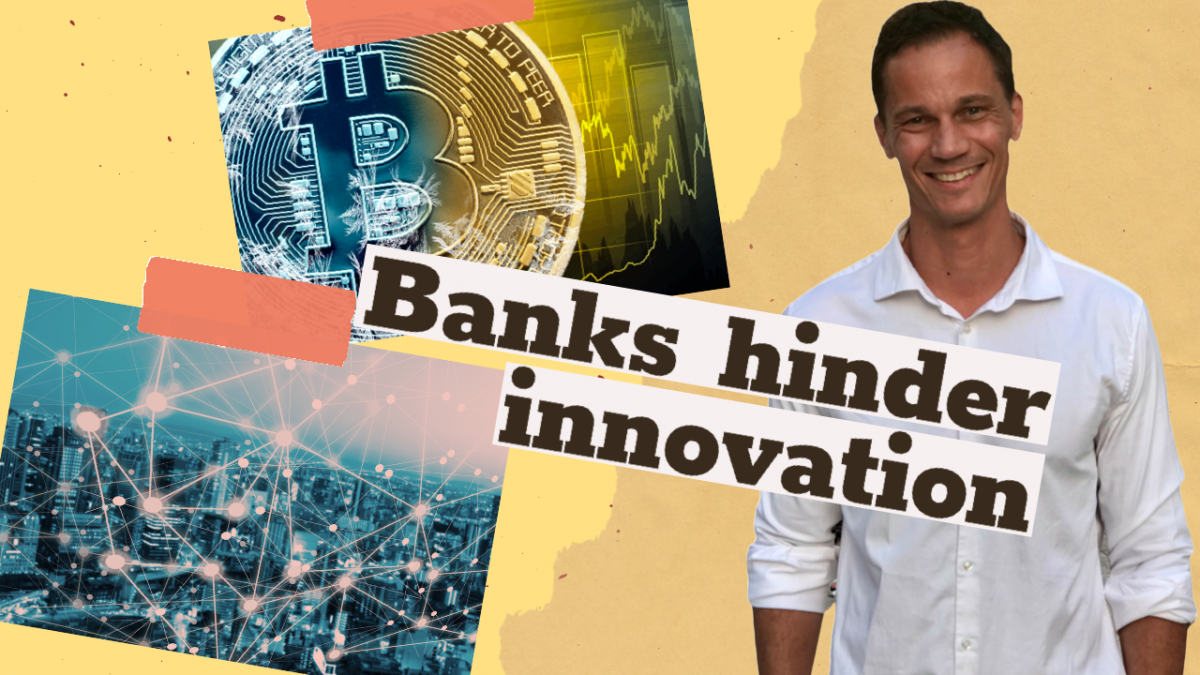Banks may be considered secure, but they are failing to provide satisfactory and effective services for billions of people and hinder the development of the financial sector. Is FinTech the solution?
Crises do not only foster personal growth but also societal developments. The 2008 global financial crisis led to the growth of an innovative financial industry called fintech. FinTech is short for Financial Technology and is used to describe an industry that combine new technology and financial services. Commonly FinTech companies offer digital payments instruments, lending, crowd funding and open banking as well as cryptocurrency. The Swedish FinTech sector has grown more than fifteenfold since 2008 and is proud to offer a healthy innovative environment for about 450 FinTech companies. Stockholm is a hub for many FinTech companies such as Klarna, Avanza, Qliro and Nordnet.
However, innovation can be disruptive. FinTech is seen as a threat to traditional banks as it eliminates the middleman in economic transactions. Traditional banks are making it harder for people to interact with FinTech companies by banning the use of debit and credit cards for cryptocurrency purchases. The Swedish bank Handelsbanken have blocked the use of debit cards on the crypto exchange Binance and the credit card company Remember have blocked all crypto purchases. Since the beginning of 2022 it is not possible to buy crypto with a Swedish debit or credit card on any of the major crypto exchanges.
The official explanation for blocking crypto payments is that it protects the customers for risky investments and from fraud. Hang on! What‘s’ going on here? I am not a gambler, but I am sure that I can use my debit/credit card when I go to a casino. I know I can use it to buy a few margaritas in the nightclub… I do not need any bank to decide for me what an risky investment is.
The only reasonable explanation for blocking crypto payments is that crypto is seen as a threat to the core business model of traditional banking. It is common knowledge that traditional finance is fearful of the transformative power of the crypto industry. At first glance it may seem natural that traditional banks protect themselves, but it is a violation of freedom when they try control how we spend our money.
On a broader scale these measures by the banks pose a threat to the FinTech industry and hinders innovation. The FinTech industry is a growing part of the financial system in Sweden and have earned 0.15 percent of the nation’s GDP. Some FinTech firms use blockchain technology and crypto currency in their business model. Sweden is increasingly seen as an international player in the FinTech industry and traditional banking will go through changes in the fourth industrial revolution. It’s a fact that major global banks use blockchain technology as a way to improve their service. But blocking banking card transactions to crypto exchanges sends another very clear message.
The traditional banking sector is seen as a secure with government guarantees but it has failed to help those in most need. There are approximately 1.7 billion unbanked people in the world and most of them are women. In developing countries 94 percent of the population has a bank account but in developing countries the figure falls to 63 percent. On a global scale 72 percent of all males have a bank account and 65 percent of women do.
FinTech has potential to provide banking services for the unbanked and help to solve the problem with financial inequality. I would like to ask the traditional banking industry how one can live without having a basic checking of savings account!? How can a person live a normal life when there is no way to get a loan or difficult to pay for groceries. How are banks helping the poor?
Well, let’s not forget. Banks are not our friends. The world would be wise to consider what the FinTech industry can do to improve the current financial system. Lets create a sound financial system for the benefit of mankind. A system that do not exclude either traditional banks or the crypto industry.

